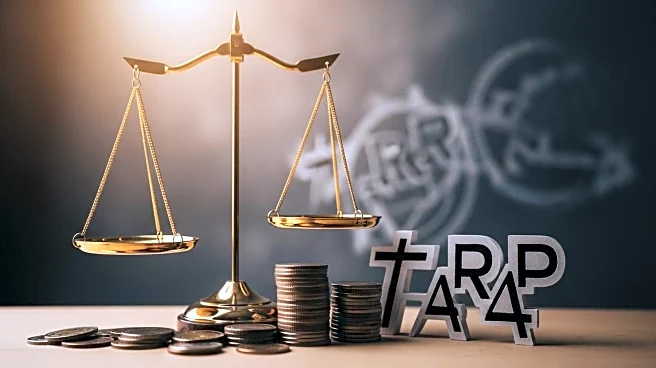What's Happening?
President Trump has proposed the idea of distributing stimulus checks ranging from $1,000 to $2,000 to Americans, funded by revenues from increased tariffs on imported goods. In an interview with One America News, Trump discussed using these revenues to pay down national debt and potentially distribute a 'dividend' to the American people. The U.S. national debt has surpassed $38 trillion, and Trump believes that economic growth spurred by his policies, including tariffs, will help reduce this debt. The administration has reportedly generated approximately $215 billion from these tariffs since April. However, experts warn that Trump's tax policies could add significantly to the national debt over the next decade.
Why It's Important?
The proposal to use tariff revenues for stimulus checks could have significant implications for the U.S. economy and citizens. If implemented, it could provide financial relief to Americans, potentially boosting consumer spending and economic activity. However, the plan requires congressional approval, and the current political climate may pose challenges. Additionally, while the tariffs have generated substantial revenue, the long-term impact of Trump's tax policies could increase the national debt, potentially offsetting the benefits of the proposed stimulus. The proposal highlights ongoing debates about fiscal policy and economic strategy in the U.S.
What's Next?
For the proposal to move forward, it would need to gain support in Congress, which is currently divided. Previous attempts, such as Senator Josh Hawley's American Worker Rebate Act, have not yet passed. The outcome of this proposal will depend on political negotiations and the ability to garner bipartisan support. The potential for a government shutdown and other fiscal challenges may also influence the proposal's viability.











